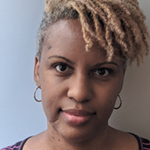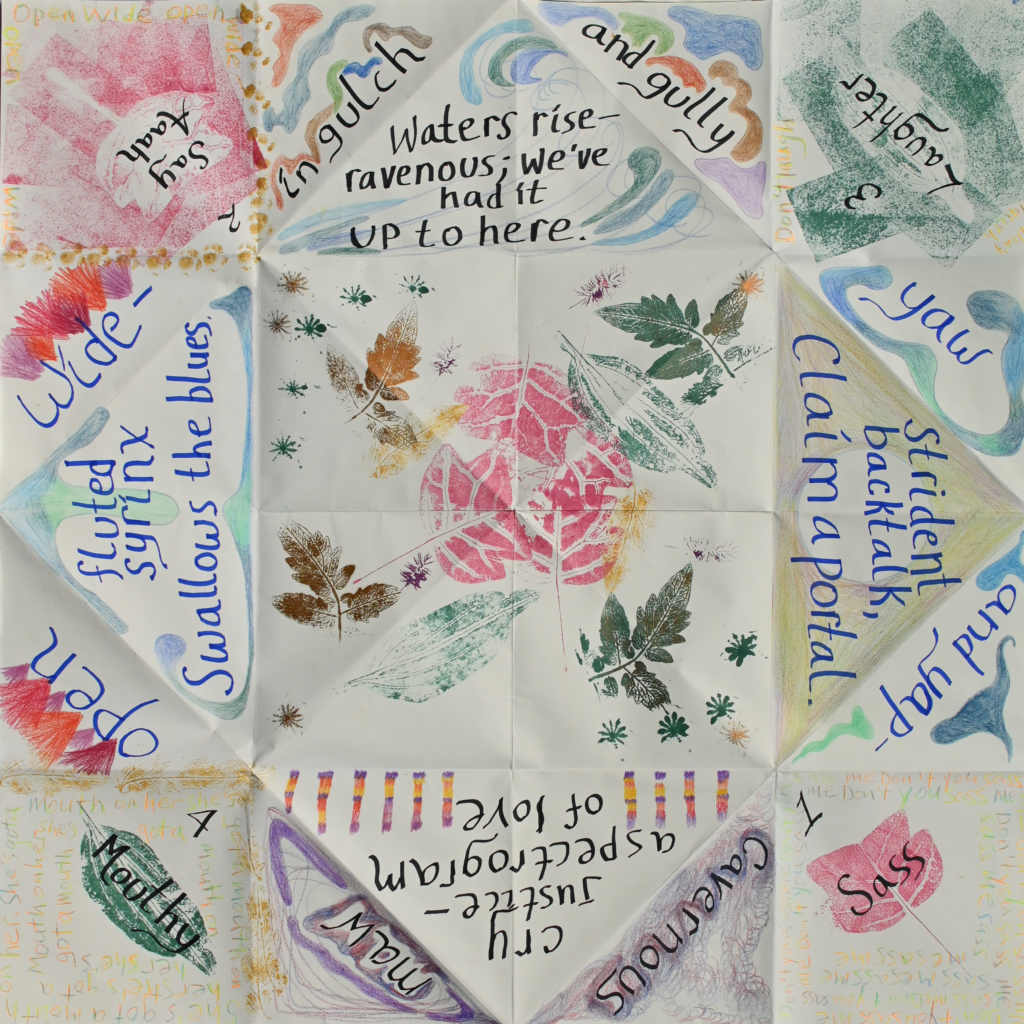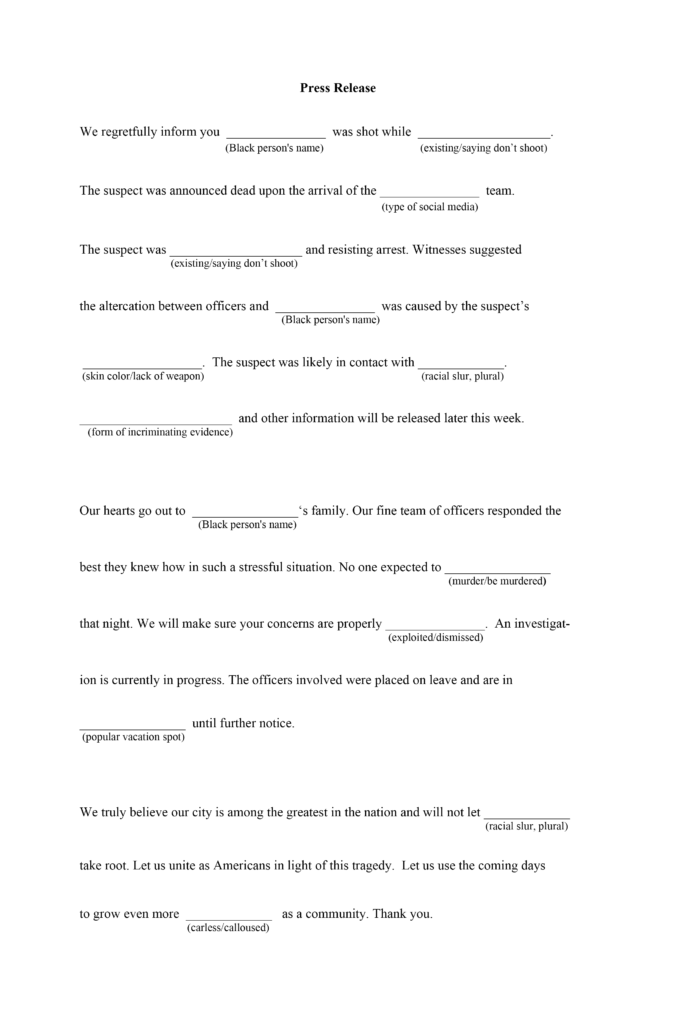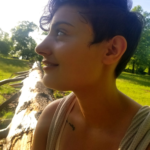Unruly Gravity
“In a groundbreaking article, ‘Humanities Approaches to Graphical Display,’ Johanna Drucker offers a definition of the term data (here in the context of a discussion of the digital humanities) as capta, a French word that is the third-person, past historical singular of the term for both ‘capture” and ‘sense.’”
—from “Mad Data: Between Symptom and Experience,” American Quarterly
2019. I’m on a swing. My father is yelling, “Pump, pump!” but that’s the last thing I want to do, because my heart is racing and I keep swinging higher and higher, no matter how still my legs and eyes are. I can see pieces of plastic, like two sides of a box, and plants. There are plants everywhere.
No.
I’m totally blind and I don’t know what a plant looks like and my father is dead. I’m at my sister’s engagement party and I’m not on a swing, I’m sitting at a Greek restaurant in a garden somewhere in Florida and if I can just force my feet to stay on the ground, maybe no one will have noticed that I took too big of a hit off my sister’s fiancé’s vape pen and that it’s just caught up with me and maybe gravity will start behaving like it normally does and maybe I’ll be able to breathe again and maybe I’ll stop interpreting my body’s own movements as sensory data, which I’ve read is a symptom of schizophrenia. Jason, my sister’s fiancé’s brother, is getting loud. Lines of conversation snake over and to the left and behind me, like scaffolding.
I can feel people’s eyeballs pulsating. I lean over, tell my mother that I just saw a ceramic flower pot. She asks me how I knew; the pot is to my left, but actually there are pots like that all around us. I say that I tuned into its frequency. My eyes are only building more momentum. I’m running on a treadmill that I can’t stop. The world is too fast. I can see but I can’t breathe.
“Under this hypothesis, I usually tune out the visual signal, as it has been proven to be unreliable. However, marijuana causes alterations in the precision weighting of the visual error signal, so that it becomes more salient. I make better use of the visual error signal, which leads to updated predictions that match the error signal.”
—from “Observing My Cannabinoid-induced Visual experiences from a Predictive Processing Perspective,” an unpublished paper by Tasha Raella
2009. I have trouble telling this story in the present tense. The first time I learned to see, or rather, realized that I was seeing, I’m at my family friends’ lake house. It’s dusk, and I’m smoking a joint on the deck with Jack and Kevin. They’re old camp friends of my dad’s, and they’ve known me since I was a kid. Kevin checks the time on his phone, and I’m startled by the brightness.
“I wonder if it’s the pot,” Kevin says, almost to himself. Jack blows the possibility off, laughs his jaded Jack laugh. But Kevin remains curious. He downloads a strobe light app. The light jumps toward me. It keeps changing: pursuing and retreating, shrinking and thickening and sharpening. First, it’s a spooling thread, then a rope, then a gauzy curtain, then a block of wood, then the glint of a knife.
“Those are colors,” he says. “You’re seeing color, Tash.”
I learn that black is big and white is sharp. Kevin starts to teach me to put names to sizes, his Israeli accent deepening, his voice becoming more and more animated. Without his customary cynicism, he sounds like a small boy, or like someone who would narrate an audiobook about British schoolchildren. Our usual banter is replaced by awed silences. Then Jack sings out, “Who’s ready for tequila?” and all is forgotten.
“In 1909, the biologist Jakob von Uexküll introduced the concept of the umwelt. He wanted a word to express a simple (but often overlooked) observation: different animals in the same ecosystem pick up on different environmental signals. In the blind and deaf world of the tick, the important signals are temperature and the odor of butyric acid. For the black ghost knifefish, it’s electrical fields. For the echolocating bat, it’s air-compression waves. The small subset of the world that an animal is able to detect is its umwelt. The bigger reality, whatever that might mean, is called the umgebung.”
—from “The Umwelt” by David Eagleman
2014. A month before I leave for grad school, I try hash oil for the first time, and the effects linger into the next day. We take a friend’s young daughter to the aquarium. I don’t panic when my mom believes that I saw the jellyfish, but I skirt it, taste the metal of it. The jellies are like those orange gummy candies people hand out at bar mitzvahs. We leave the aquarium and sit down for lunch at one of those overpriced cafes on Newbury Street. I borrow my mother’s sunglasses so I can stop replaying their glide projected onto my lips and upper teeth.
Each person’s belief has a different taste or texture, and some are more sustaining or less pleasant than others. My mother’s is like cane sugar, the kind they put in Mexican Coke. Kevin’s used to taste like honey. Dr. Ashtari’s feels like the corduroy pants I refuse to wear. It burrows under my fingernails, soft but not soft. My whole body tenses with the chill.
2012. We’re in the kitchen, doing that awkward Jack-and-Karen ritual where we stand around for hours while Karen and my mom make guacamole and charred broccoli. I start walking towards what I think is a chair, but that thought is based on a slippery, opalescent knowledge, the kind that’s only found in dreams, so I distrust it.
“Where were you going?” Kevin asks.
I look down, abashed. “I thought there was a chair there.”
“Well, is there? Go and see.”
I still hesitate. I was able to describe the triangular fireplace two minutes ago, and I’m loath to be wrenched away from that rightness.
“Go on,” Kevin prods.
I take five steps forward, find the chair. I want to lick the belief off his fingers.
2014. My roommate Sarah and I are lying by the river. I’m supposedly writing an essay about unschooling, but her brother’s hash oil is so potent that I can’t do much of anything. I feel like I’m on a slant, even though the ground is flat.
“You’re seeing the railing,” Sarah tells me. “Look to your left. Can you see the water?”
I can’t, but I think I can see a fence, which is just as fascinating to starving retinas.
Other things I see that week:
* The cups of ice cream in Whole Foods, stacked on top of each other like castles.
* My other roommate’s hair.
* The couch.
* A stack of plates.
* Everyone’s hands.
2015. Sarah and I are shopping for lipstick.
“What red do I want, Tasha?” she asks. I expect her belief to have a taste, but it’s bland, like water. At grad school I’ve reinvented myself as the Blind Girl Who Sees, and Sarah’s never met the version of me who doesn’t understand what red is. She knows me as someone who makes startling eye contact sometimes, and unnervingly canny comments about the paintings we’re looking at in our Art and Understanding class, so it’s not surprising she’s treating me like a real girl. The two reds she is considering have different weights, different viscosities.
“The scarlet,” I tell her. “It suits your complexion.”
“A brain-imaging study of 12 people who had been blind from birth, and 14 sighted people, published recently in Nature Communications, shows that while for sighted people, sensory and abstract concepts like ‘red’ and ‘justice’ are represented in different brain regions, for blind people, they’re represented in the same ‘abstract concept’ region.”
—from “Making Sense of How the Blind ‘See’ Color,” the Harvard Gazette
2016. I’m at a barbecue at my mom’s house. My eyes are too far away from the rest of my body. I’m sitting in a chair, but they are all the way at the edge of the deck, and I’m stuck, imagining what it would be like to step off that drop, jolting myself over and over and over again. My mom’s friend is asking me a question, but I have no idea what it is. Something about where to get good Thai food in Brookline? When she repeats it, I make my voice extra loud, extra lucid, but the light someone has just turned on starts yanking my hips in the opposite direction. I can’t generate enough force to resist.
Then, Kevin The Psychiatrist is there; Kevin The Friend is absent. “Your jaw is tense,” he says. He takes me inside to wash my hands, tells me to splash warm water on my face.
“Does weed give you panic attacks?” he asks later.
“It doesn’t matter,” I say. “I can make them stop.”
“Or you could stop smoking.” His disapproval has the same chalky consistency as my father’s.
“I’d miss the colors too much,” I manage to get out. I can tell that my lips are still tinged with blue. “They have twelve-step programs for that,” he says. “There’s no glory in anxiety.”
“Lead researcher Dr. Manzar Ashtari said: ‘What we saw should cause alarm because the type of damage in cannabis smokers’ brains was exactly the same as in those with schizophrenia and in exactly the same place in the brain.’”
—from “Brain Imaging – Cannabis and Schizophrenia Look Similar,” The Daily Schizophrenia News Blog
2017. It’s the Fourth of July and I’m sitting on a blanket with a college friend. The fireworks are like burning sponges, or paintings with no peripheries, or French castles set ablaze by a particularly heinous enemy. I mourn their stability when they wink out, and my friend mourns with me: my burning sponges usually line up with hers. At work the next day, I hold onto the memory until it shrivels, lies limp in my arms. My tutees, with their endless demands, their baggy sentences and rumpled paragraphs, are always there to help me forget, if I want to let them.
From: Joseph Carroll <[address redacted]>
Sent: May 15, 2015
To: Tasha Raella <[address redacted]>
Tasha:
Unfortunately, biofeedback is not my area of expertise.
As for Leber’s Congenital Amaurosis, I don’t think the eye movements are interfering with the eyes’ interaction with visual stimuli, there is a more serious underlying degeneration of cells that prevent light absorption. Cannabis is known to increase cortisol and reduce visuomotor integration, so noticing differences in your eye movements or perception is not too surprising.
Best,
Joseph Carroll
Professor of Ophthalmology
the Medical College of Wisconsin
2014. Two weeks after that day by the river, I learn that if I can shift all my weight into my eyes, I can climb the walls with them. My concentration slackens. I do the wrong reading for one of my classes and raise my hand to say something irrelevant. I sleep late and get up late and when I show up at my internship at a middle school with my freshly gelled hair, it looks wet, unfinished.
I meet my mom for coffee.
“I want to talk to you about something,” she says, handing me my Rooibos latte. “When I have friends over, I know you like to smoke pot and see and that, but it’s not the right time and place, if you know what I mean. Do it when it’s just us, rather.”
“Why?” I ask.
When it’s just us, there’s too little motion and too much predictability. My face turns to sandpaper. I’m remembering last night at Jack and Karen’s. My mom shows Karen a picture of the view from her balcony in Provincetown, and I catch a glimpse of it. I have twelve questions about what I see (what do all the prickly lines mean and why do I feel like I am sliding and what gives the picture so much depth) but I tamp down my exuberance and ask just one. I learn that the prickly lines were edges.
“It hijacks the conversation,” she says. “It’s fine to do when we’re at home, but just not socially.”
2015. It’s Julian’s birthday and all the people in my grad program who smoke are shoved into someone’s bedroom. I pass my pen around. The floor tilts, suddenly. I’m on one of those centrifuge rides that spins so fast you get stuck to the wall. There is something glass in front of me and I can’t pay attention to anything else, even though someone is talking about the professor I have a tiny girl-crush on. I keep projecting my eye movements to my feet, sliding up and down that glass.
“Sorry, I have to sit down,” I say. My classmate Ava walks me to the living room, hands me some too-sweet juice. Her belief is alcoholic. There’s a pillow on the couch. The pattern seems infinite (it’s flowers, I can somehow see the fucking flowers). There’s such a thing as too much certainty. My teeth are all in the wrong places, and the room doesn’t have any edges.
“What else do you see?” Ava is an art teacher, and she asks the question like we’re at a museum looking at some unreasonably abstract painting.
“Nothing now,” I say contritely. “It’s all right,” she says. “What you have—it’s like a staticky radio signal.”
“Sinha showed me a video in which a teenage boy, blind since birth because of opaque cataracts, sees for the first time. The boy sits still and blinks silently, the room around him reflecting in his eyes as a kind of proof of their new transparency. Sinha believes these first moments for the newly sighted are blurry, incoherent, and saturated by brightness—like walking into daylight with dilated pupils—and swirls of colors that do not make sense as shapes or faces or any kind of object.”
—from “What People Cured of Blindness See,” The New Yorker
2015. It’s late April and Sarah says I can use her semi-porch for my quasi-date. Eiton is at MIT and is working on a project that allows you to listen to the sound trees make through bone-conduction headphones. We eat pad thai and French fries dipped in coconut curry sauce and we talk about what it means to be present. We agree that David Eagleman is a bit of an ass, and the idea of being able to feel Dow Jones scores as vibrations through a vest is gimmicky and capitalistic and a little douchey, but the concept of an umwelt is pretty cool, or at least the word is fun to say. We smoke some Blue Dream and I have one of those moments where I’m transported back to that theatre exercise where you move your arms and your partner mirrors you. Really what I’m doing is making eye contact with Eiton. But I’ve forgotten that it’s not summer yet and that recently weed has started making me cold. I can’t stop shivering, even after we go inside and Eiton piles all the blankets in our apartment on top of me, even after I try to engage in normal conversation for ten minutes, even after he says he hopes I feel better, even after he leaves and my roommate comes home and everyone goes to bed.
From: Bronstein, Adolfo, Ph.D. <[address redacted]>
Sent: December 15, 2015
To: Tasha Raella <[address redacted]>
Dear Tasha, thanks for a nice comprehensive email. A detailed discussion would take a lot of time but let me say a few things. Over the years I have seen a handful of patients whose tremor or nystagmus improves under alcohol or marihuana, so I fully believe your story. However it would be nice to see at some stage your subjective and objective data set side by side. Generally speaking a good vestibular therapist should be able to help you to increase vestibular cues and Dr. Merfeld might help on this too. Finally and this is not just a legal disclaimer but plain medical advice, make sure you don’t overdo the dope or get hooked. Discuss this with some campus counsellor?
Sorry I cannot spend more time right now and I hope these few comments help.
Best wishes,
Adolfo Bronstein
Professor of neuro-otology and consulting neurologist
University College London
2015. Dr. Ashtari can only talk at night, so our phone conversations are always hushed and brief. During the days, I collect my visuals like dead mice.
“You need an amplifier,” she muses once, “something to boost the signal from the retina.”
The next night I tell her about the pink fairy lights I saw in Sarah’s room (the pinkness is real, and it smells like Toys “R” Us).
“Be careful with the marijuana,” she says. “I’ve researched this. I don’t know how strong the stuff you’re using is but it can be pretty abrasive. It can lay down pathways but it can also erase them.”
(Like the time my mom ripped up the carpet in my childhood bedroom to replace it and for a while, there was just the bare cement.) That night I have a panic attack because my eyes spend too long playing in the grid of the heating vent, and then skating up the white, white walls. I don’t tell Dr. Ashtari this. She’s not interested in panic attacks, or flickering radio signals, or ambivalence.
2013. I can’t eat eggs Benedict without making a mess and I can’t make a mess today because Meg and I both have our laptops out. We’re workshopping poems at our favorite brunch place, Misery Loves Company. I’m proud of the imagery in my latest poem, but Meg seems less than enthused.
“I’m noticing something,” she says. “Do you know how many of your lines start with ‘he told me’ or ‘Kevin told me’ or something like that? It’s like, you’re writing is always being strained through a filter.”
This must be payback for the comments I wrote on her latest poem, the one about her “winter boyfriend.” They hit too close to the mark. She must have seen me flinch because then she reaches across the table and pats my arm.
“How sightist or whatever of me,” she says. “I forgot that the rules are different for you.”
2012. Jack and Karen’s again. My mom is cutting open something round.
“What is that?” I ask Kevin. Jack is putting his son to bed and Karen and my mom are cooking, so for the moment, I have his full attention.
“What do you think it is?”
“It looks like a stemless goblet.”
“Interesting,” he says.
“Actually, it was an Asian pear, but here, check this out.” He hands me a potato and a glass, shows me how both have the same contours.
“I thought the Asian pear was a glass, but cutting up a glass would make no sense!” I say. My laugh fizzes, as contagious as a child’s. I pick up the potato and dance across the kitchen.
“Drucker is not suggesting that data be abandoned as a scholarly term, but she does ask how humanists might begin to conceive of data as being ‘constituted relationally, between observer and observed phenomena.’ Drucker makes an important point about data in terms of their inextricability from associational interpretation and additionally highlights the intra- and extra-relational nature of data.”
—from “Mad Data: Between Symptom and Experience,” American Quarterly
2019. After dinner at the Greek restaurant, we’re walking back to the hotel. We’re in a parking structure, on a narrow strip that’s just meant for cars. An urban jungle, my stepdad calls it. My cheeks still feel as if they’ve been slapped, and there’s too much tension between my arches. When we emerge onto the street, which is lined with high rise apartment buildings, my eyes keep shooting upward, throwing me farther off balance. My ridiculous wedge sandals aren’t helping. The quality of the air here reminds me of Vegas. I have no language to explain why. I mistake a neon sign for sunlight.
Tasha Raella’s work has previously appeared in Wordgathering, Breath and Shadow, and the anthology Barriers and Belonging. She has been totally blind since birth and holds Master’s degrees in social work and education. She is an academic coach at a college in Boston.


 BACK TO ISSUE
BACK TO ISSUE











